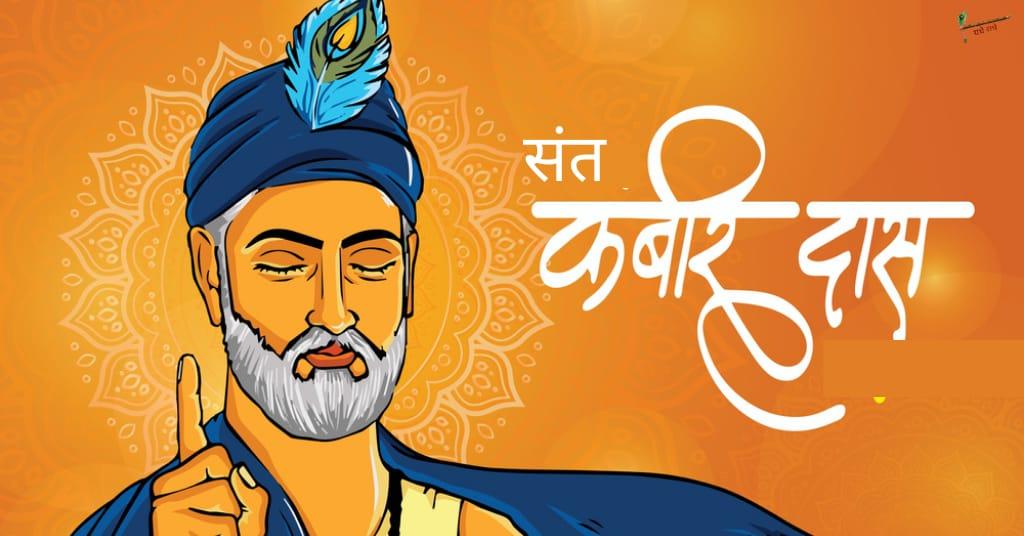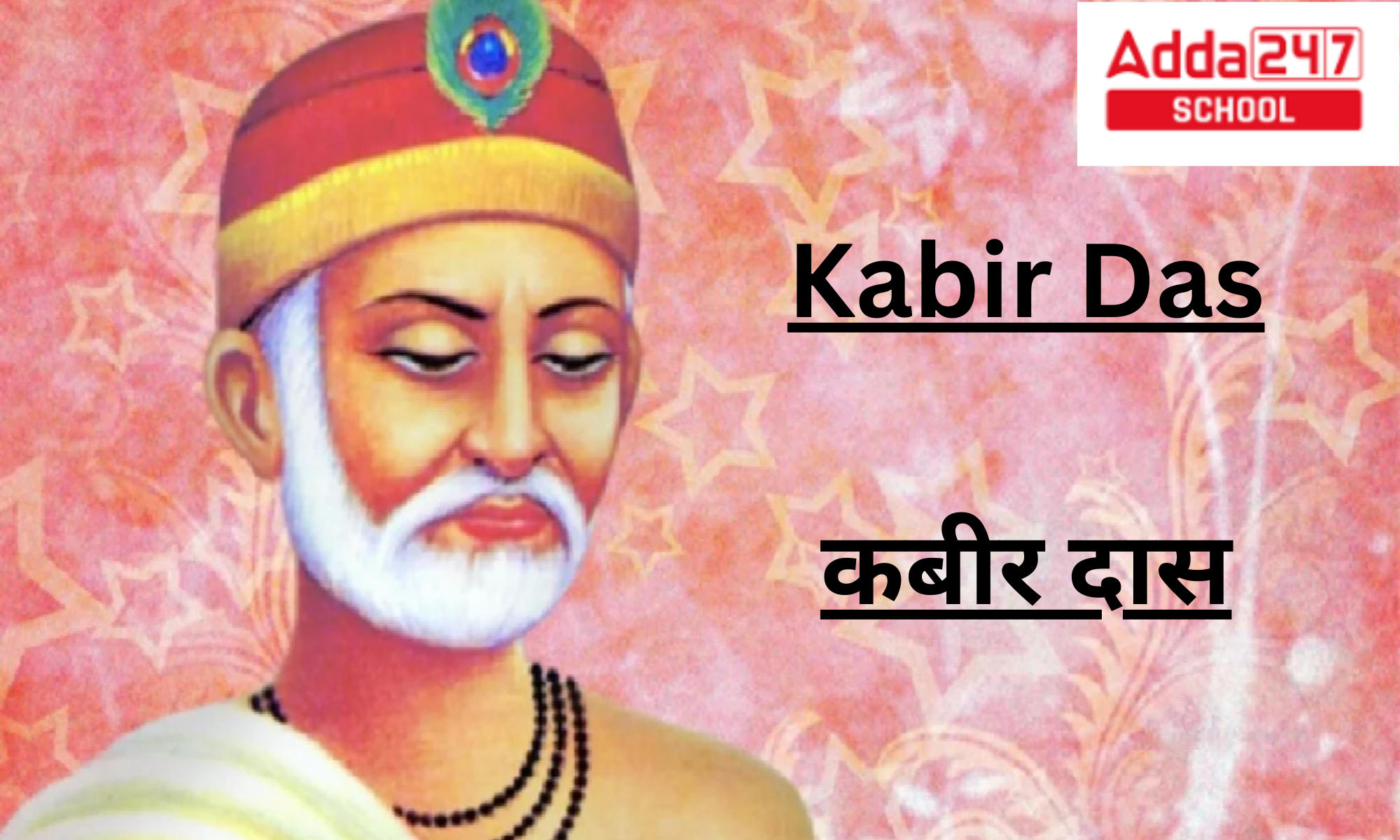Table of Contents
Kabir Das
Kabir Das, a saint and mystic poet, lived in India in the 15th century. His verses can be found in the Sikhism literature Guru Granth Sahib, Saint Garib Das’ Satguru Granth Sahib, and Kabir Sagar. His writings had an impact on the Hindu Bhakti movement. Kabir’s birth is steeped in mystery and folklore. In recent times, Kabir das is frequently portrayed as a reconciler of Hindu and Muslim doctrine and practice.
Kabir das Date of Birth
Kabir Das was born in 1398 in the ancient city of Varanasi, which is now in Uttar Pradesh, and Kabir Das is well known for his criticism of all religions and organized religion.
Kabir Das Religion
It is believed that the mother of Kabir Das was a Brahman. She left Kabir behind because she wasn’t married, and a Muslim weaver later found and adopted him. There is little doubt that he was a Muslim in his early years, but Ramananda, a Hindu ascetic, later had a significant impact on him.
Satyendra Nath Bose, Biography,Invention, Acheivement, Education
Kabir Das ke Dohe (Doha)
1. Doha:
बडा हुआ तो क्या हुआ जसै पेड़ खजर|
पंथी को छाया नही फल लागेअति दरू ||
Translation in English: Being extremely powerful or wealthy is useless if you don’t help others. For instance, while being so tall and having its fruit at the top, a palm tree is useless to a tourist because it doesn’t provide any shade. No one can therefore simply eat it.
2. Doha:
कबीरा खड़ा बाज़ार में, सबकी मांगेखरै |
ना काहूसेदोस्ती, ना काहूसेबरै ||
Translation in English: Always have positive thoughts about everyone. There is no need to be too cordial or antagonistic with anyone.
3. Doha:
कहेकबीर कैसेनिबाहे, केर बेर को संग |
वह झूमत रस आपनी, उसकेफाटत अगं ||
Translation in English: It is impossible for diverse people to coexist. When ber (jujube) and banana trees are placed close to one another, the ber tree swings in the air while the banana tree’s leaves are shredded by the ber tree’s thorns.

4. Doha:
तिनका कबहूँन निदिं येजो पावन तर होए |
कभूउडी अखिँ याँपरेतो पीर घनेरी होए ||
Translation in English: As you shouldn’t step on a speck, you shouldn’t abuse the weak. It will hurt a lot when that weak individual counterattacks. similar to how a bit of dust in the eye may be quite uncomfortable.
5. Doha:
माटी कहेकुम्हार से, तुक्या रौंदेमोय |
एक दिन ऐसा आएगा, मैंरौंदगी तोय ||
Translation in English: The earth conveys to the potter that although you may think you are kicking and kneading me with your feet, one day you will be buried beneath me and I will knead you.
Sarojini Naidu: Biography, Poems, Books
Kabir Das Works
The poetry of Kabir was written in common Hindi, incorporating elements from Braj, Bhojpuri, and Awadhi dialects. They address many facets of life and exhort a devoted love for God. Kabir wrote his verses in straightforward Hindi. The majority of his writings dealt with discipline, mysticism, and devotion.
The literary works Kabir Bijak, Kabir Parachai, Sakhi Granth, Adi Granth (Sikh), and Kabir Granthawali all contain pieces that are credited to Kabir (Rajasthan). For instance, Kabir Bijak is available in two significant recensions, with the exception of Adi Granth, making it difficult to determine which version is the more original. Charlotte Vaudeville, a French Kabir scholar who lived in the 20th century, is credited with conducting the most thorough scholarly analysis of the many versions and translations.
According to Westcott’s Kabir and the Kabir panth, there are 82 works that have been attributed to Kabir. Two extraordinary manuscripts were discovered by Shyamsundar das, who published them in 1928.
Sant Kabir Biography
Sant Kabir, often referred to simply as Kabir, was a prominent Indian mystic poet, saint, and philosopher who lived during the 15th century. He is one of the most revered and influential figures in the Bhakti and Sufi movements in India and is considered a unifying force in Indian spirituality. Kabir’s writings and teachings emphasized the importance of love, devotion, and a direct personal connection with the divine.
Here are some key points and information about Sant Kabir:
- Birth and Background: The exact birthdate and birthplace of Kabir are a subject of debate among scholars. However, it is generally believed that he was born around 1440 in Varanasi, India. He was born into a low-caste family and grew up in a Muslim household. This unique background played a significant role in his teachings, as he emphasized the unity of all people and criticized the rigid caste and religious divisions of his time.
- Spiritual Journey: Kabir’s spiritual journey was marked by a deep quest for truth and a rejection of formal religious rituals. He was influenced by both Hindu and Sufi traditions but sought to transcend sectarian boundaries. His teachings focused on the worship of one formless, omnipresent God and the importance of inner realization and direct experience of the divine.
- Poetry and Writings: Kabir expressed his spiritual insights primarily through his poetry and verses, which were composed in vernacular languages like Hindi and Awadhi. His poetry is known for its simplicity and accessibility, making it relatable to people from all walks of life. His verses often employed metaphors and analogies from everyday life to convey profound spiritual messages.
- Universal Themes: Kabir’s poetry addressed universal themes such as the impermanence of life, the futility of rituals, the equality of all human beings, and the unity of God. His writings encouraged people to look beyond external differences and seek a direct connection with the divine within themselves.
- Legacy: Kabir’s teachings and poetry have had a lasting impact on Indian spirituality and culture. His verses continue to be sung and recited in devotional gatherings (kirtans) across India. His philosophy of spiritual inclusivity and social equality has also influenced various reform movements and thinkers throughout Indian history.
- Popular Sayings and Dohas: Kabir’s verses, known as “dohas” or couplets, remain popular to this day. They are often quoted for their timeless wisdom. Some of his famous dohas are still widely recited and studied by people seeking spiritual guidance.
- Controversy: Kabir’s outspoken criticism of religious formalism and the prevailing social order often put him at odds with established religious authorities. He faced criticism and opposition during his lifetime, but his teachings continued to resonate with those who sought a more direct and personal connection with the divine.
Sant Kabir’s legacy endures as a testament to the power of spirituality to transcend religious and societal boundaries. His teachings emphasize the importance of love, humility, and inner realization on the spiritual path, making him a revered figure in India’s rich spiritual and philosophical tradition.
Kabir Das Death
Both Muslims and Hindus threatened him during his lifetime because of his opinions. Many Muslims and Hindus who had been influenced by him claimed him as their own when he passed away.
Kabir Das ka Jivan Parichay
कबीर दास- संत और रहस्यवादी कवि कबीर दास 15वीं शताब्दी में भारत में रहते थे। उनके छंद सिख धर्म के ग्रंथ गुरु ग्रंथ साहिब, संत गरीब दास के सतगुरु ग्रंथ साहिब और कबीर सागर में पाए जा सकते हैं। उनके लेखन का हिंदू धर्म में भक्ति आंदोलन पर प्रभाव पड़ा।
कबीर दास जन्म
कबीर दास का जन्म 1398 में वाराणसी के प्राचीन शहर में हुआ था, जो अब उत्तर प्रदेश में है, और कबीर दास सभी धर्मों और संगठित धर्म की आलोचना के लिए जाने जाते हैं।
कबीर दास मृत्यु
उनके विचारों के कारण मुसलमानों और हिंदुओं दोनों ने उनके जीवनकाल में उन्हें धमकी दी। कई मुसलमान और हिंदू जो उनसे प्रभावित थे, उनके निधन पर उन्हें अपना होने का दावा करते थे।
कबीर दास धर्म
ऐसा माना जाता है कि कबीर दास की माँ एक ब्राह्मण थीं। उसने कबीर को पीछे छोड़ दिया क्योंकि उसकी शादी नहीं हुई थी, और एक मुस्लिम जुलाहा ने बाद में उसे ढूंढ लिया और उसे गोद ले लिया। इसमें कोई संदेह नहीं है कि वह अपने शुरुआती वर्षों में एक मुसलमान थे, लेकिन एक हिंदू तपस्वी रामानंद का बाद में उन पर महत्वपूर्ण प्रभाव पड़ा।
Also Read:
- How Many Liters In A Gallon Of Water?- In India, UK, US
- Sustainable Development Project, Definition, Example, PDF For Class 10
- Oscillatory Motion, Meaning, Definition, Example, Diagram
- Heterogeneous Mixture- Meaning, Definition & Example For Class 9
- My Best Friend Essay In English 200 Words For Boys/Girls PDF
- Important Question Of Physics Class 12 With Answers
- Parenchyma- Cells, Tissue, Meaning, Function, And Diagram
- What Is Hybridization?- Sp3, Sp2, Examples And Formula
- What Is A Stethoscope?- Its Parts, Uses, & Diagram
- Parallel Axis Theorem, Proof, Definition, Formula, Examples


 TN 12th Topper List 2024, Toppers Names,...
TN 12th Topper List 2024, Toppers Names,...
 10th Result 2024 Odisha, Check Matric Re...
10th Result 2024 Odisha, Check Matric Re...
 Safe Score For NEET 2024- Is 630 a Good ...
Safe Score For NEET 2024- Is 630 a Good ...















